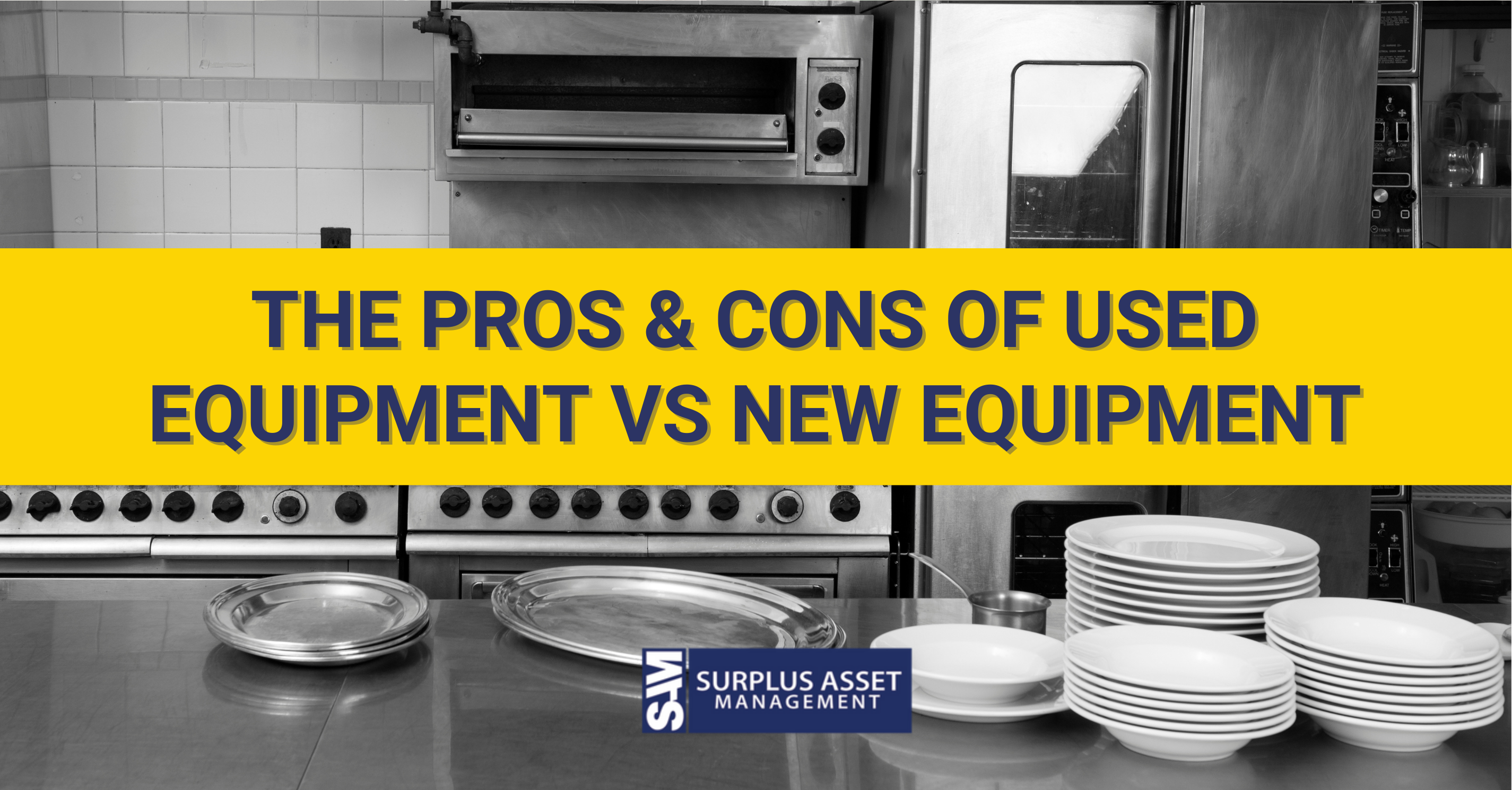There is much to consider when buying new commercial equipment for a business. Whether for a grocery store or other related business, finding the ideal product for a reasonable price is challenging. One option that many companies can choose from is buying used commercial equipment from a reseller.
Factors for Choosing Commercial Equipment
Many items may be on your commercial equipment list, from mixers to coolers. It can be expensive, whether starting a new or replacing an old item. However, it's crucial for success.
Factors like your business needs, budget, space, user-friendliness, maintenance, energy efficiency, material quality, health and safety standards, in-store demonstrations, and new versus used options require careful consideration before investing.
According to Phenomena, there are ten factors to keep in mind before making the purchase.
● Identifying the establishment's specific needs: Assessing your requirements before buying equipment ensures you purchase the product that best serves your business's needs.
● Budget constraints: Budget plays a significant role. If the upfront cost is too much, there may be other options, such as buying used equipment or investing profits as the business grows.
● Measure the space ahead of time: To ensure the equipment fits properly, measuring the space ahead of time is best.
● Choose user-friendly equipment: User-friendly equipment creates a more comfortable environment and reduces labor time for your staff.
● Inquire about maintenance requirements: to ensure long-term performance.
● Opt for energy-efficient equipment: Energy-efficient equipment is better for the environment and minimizes utility costs.
● Choose durable equipment: Select equipment from durable materials such as stainless or galvanized steel. This will make the equipment last longer.
● Ensure equipment meets health and safety standards: By law, equipment must comply with health and safety regulations.
● Request in-store demos: For a better understanding of the features and how well the product works, requesting a demo for specific equipment can be beneficial before making a purchase.
● Consider purchasing used equipment: Used equipment can save your business as much as 70%. This also helps recycle old materials; some of these products still have warranties.
Used vs. New Commercial Equipment
Buying new commercial equipment can add up quickly. That's why many people choose the used commercial equipment route. There are many positive outcomes for buying used equipment. However, there also can be some negative ones.
Used Commercial Equipment
Three top factors for choosing used commercial equipment include lower costs, gently used equipment availability, and warranties.
Just as cars almost immediately depreciate once you drive off the lot after buying them, commercial food items also lose value once they leave the showroom. This makes finding big deals on oversized items such as stoves and ovens easy. Depending on the seller, you can also talk down the price even further or find additional deals for other materials.
Gently used equipment is also often easy to find. For example, many restaurant businesses do not make it past two years of business, and a lot of that gently used equipment gets sold off.
There are also many second-hand dealers with specific certifications that inspect the items before making the sale. This means certified used products have been checked for safety and repair before purchasing. However, this is only sometimes the case. It is always best to make sure used equipment is fully inspected ahead of time before buying.
Finally, many resold used commercial equipment items may still be under warranty. If this is the case, this means that regardless of the reseller, the items are still protected for a certain amount of time by the manufacturer if something were to go wrong with them.
While buying used commercial equipment can be a great choice with proper inspection ahead of time, it can sometimes also have some impacts in the future. Some factors to consider before making the purchase include:
● Gas equipment – Repairing electric equipment can be challenging due to scarce replacement parts, whereas gas equipment is easily repairable with readily available parts. Gas equipment also tends to have fewer breakdowns. However, while maintenance costs may be lower, gas equipment typically requires higher day-to-day operational expenses than electric equipment.
● Ovens and ranges – Due to their long life span, ovens and ranges are excellent options for resale. When examining them, ensure even and accurate oven and stovetop heating. Check for a level cooking surface and intact oven seals. Consider bringing a professional chef to assess the appliance's viability if uncertain.
● Fryers – Similar to ovens and ranges, gas fryers boast a long life span, making them suitable for second-hand purchases. When evaluating a fryer, inspect the oil container to ensure it remains watertight, as any cracks could lead to oil leakage. However, you do not have to worry too much about the fryer baskets. They are easily replaceable and affordable.
New Commercial Equipment
Some of the most significant positive factors for buying new commercial equipment are that they almost always come with a warranty, they usually have a longer lifecycle before repairs need to be made, and there does not need to be a lot of digging to find the history of the item, that may require an additional inspection to make sure it is up to code.
While all of this may sound appealing, it is also essential to remember that these items are often much more expensive and lose value immediately after being removed from the package. If you decide you do not want the items later, it will also be more challenging to sell them and receive the same amount that was paid for them initially.
One of the items that may be more beneficial to buy new is commercial refrigeration equipment. Ensuring these items are up to health and safety codes is essential. They can also be very costly, not only to buy initially but also to repair if something goes wrong. Additionally, whatever items are stored within the system may be lost during a malfunction.
When buying commercial refrigeration systems or ice machines, it is extra important to ensure they are spotless and meet safety codes and standards to avoid food contamination and bad business inspection reports.
Where to Buy Commercial Refrigeration and Other Equipment
If you want a place to buy new or used commercial equipment, check out SAM Marketplace. We are a division of SAM Auctions and offer top-notch, dependable used and new grocery and commercial equipment across the U.S.
Led by seasoned experts boasting over four decades of experience in the industry, our firm's enduring partnerships with major retailers like Kroger, Safeway, HEB, Albertsons, and others grant businesses unparalleled access to trusted sources of both new and pre-owned equipment for grocery and business needs. With our extensive reach spanning the U.S., Canada, and Mexico, we are dedicated to assisting you in discovering and receiving equipment essential to your operations.
No matter what your equipment needs may be, we have a solution at affordable prices. We offer options for various categories, including grocery, refrigeration, meat, deli, bakery, and more.
Check out our refrigeration category HERE! Remember that 10% OFF through February 2024 will be applied at checkout.

